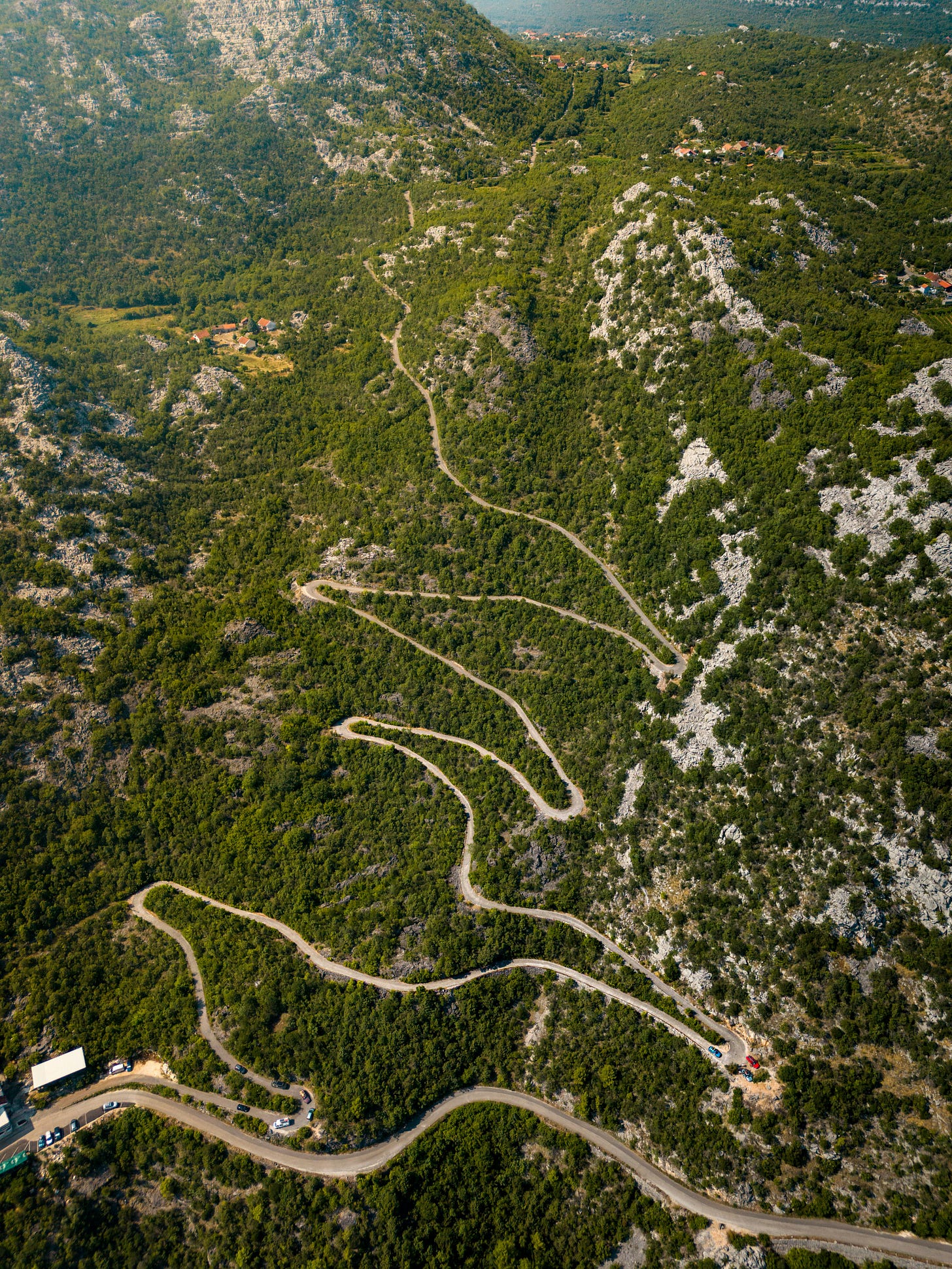London Fomothon
A few strategies I've learned for finding calm in the chaos of modern urban life
Mental Frameworks for Navigating Life's Marathon
(Photo by Michal Lauko)
If you're reading this, you're probably like me—someone in their twenties or thirties trying to figure it all out in a city that never stops moving. Whether you're in London (like me), New York, or any other urban jungle, you've likely felt that familiar cocktail of excitement and overwhelm that comes with endless opportunities and the nagging fear that you're somehow missing out on the "right" ones.
I've been thinking a lot lately about the mental frameworks that help me return to calm when anxiety and overwhelm threaten to take over. These aren't revolutionary concepts, but they've become my North Star when life feels like it's moving too fast. The core message? Life is a marathon, not a sprint.
The Micro-Optimization Trap
I catch myself doing this all the time: calculating exactly how much caffeine I've had today and agonizing over whether I should have that piece of chocolate, trying to squeeze a fourth meeting into an already packed calendar, or pushing through one more task at 11 PM when I'm clearly exhausted and should be winding down for bed.
These micro-optimizations feel important in the moment, but I've learned to remind myself of a simple truth: in the long run, things average out. The extra coffee today won't derail my sleep forever. Missing one networking event won't tank my career. That task can wait until tomorrow when I'm functional.
This perspective shift has been liberating. Instead of optimizing every single decision, I focus on the general direction I'm heading and trust that small inconsistencies will balance out over time.
Overall, I’m learning to prioritize quality over quantity and depth over breadth.
The Push/Pull Framework
Living in London means being immersed in a vast array of possibilities. There's always another exhibition to see, another person to meet, another skill to learn. It's exhilarating and paralyzing in equal measure.
I've developed what I call the push/pull framework1 to navigate this abundance:
For Activities and Experiences
Push: Test out a few activities that either spark my curiosity or feel completely unknown. I give them a genuine try, not just showing up, but engaging.
Pull: If I enjoyed it and feel drawn to return, or if it's something I can genuinely grow from (such as a new hobby, skill, or connection with stimulating people), I continue to invest time and energy.
For Social Connections
This framework has been even more valuable for relationships. I used to exhaust myself trying to re-engage connections that had naturally fizzled out, while simultaneously meeting new people and trying to nurture my closest relationships. It was unsustainable.
Now I approach it differently:
Push: I keep meeting new people and, if a connection feels interesting, I make an effort to engage further.
Pull: If they engage back with similar energy, I nurture it. If not, I might try once more (life happens, people get busy), but then I let it be. The door remains open for them to re-engage whenever they're ready.
This approach has reduced so much social anxiety for me. It acknowledges that not every connection will deepen, and that's perfectly okay.
Finding Your North Star
(Photo by Jordan Madrid)
With infinite possibilities comes the challenge of choice. What deserves my limited time and energy?
I spend more time on meta-tasks—the thinking and planning that guides everything else—and then execute shorter, tactical tasks more efficiently. When I'm uncertain about what to prioritize, I return to my North Star: a fluid, evolving sense of where I want to go and what I want to work on.
The key questions I ask: Does this help me move in that direction, no matter how slowly? Does this align with the 1-2 areas I'm trying to develop right now?
And crucially, I try to avoid the sunk cost fallacy. If a relationship, project, or effort isn't clicking despite the time I've invested, that's okay. It doesn't have to continue just because I've already put work into it. Sometimes the kindest thing I can do for myself and others is to take a break from something that isn't serving anyone.
Caveat: Rest is just as strategic as action. I'm often guilty of not giving myself enough mental or physical downtime. Remembering that long-term sustainability matters more than short-term hustle helps me internalize that rest isn't laziness—it's maintenance.
Embracing Finitude and Uncertainty
Here's a truth I'm still learning to live with: I'll never work on all the ideas bubbling in my head, visit all the places that intrigue me, or absorb all the knowledge I'm curious about. And increasingly, I think that's wonderful.
This limitation helps me embrace what Oliver Burkeman calls "the joy of missing out" in his book Four Thousand Weeks—being deliberate about what I engage with makes those choices more meaningful, not less.
I'll never have answers to every question, and this uncertainty used to terrify me. Now I try to embrace it as a feature, not a bug. My approach is to lean into the anxiety of the unknown and let curiosity guide me, while being mindful of my tendency to disappear down rabbit holes for hours.
As explored in the Secular Buddhism podcast on fear of uncertainty, moving in the right direction long-term matters more than completing every task on an arbitrary timeline. Life happens. The goal is to be like water—adapting while still maintaining some ability to shape our environment.
The AI Productivity Paradox
I'd be remiss not to mention how AI tools fit into this framework. They're incredible for increasing efficiency, but they can also amplify FOMO and lead to what Oliver Burkeman calls "The Efficiency Trap"—the more we can do, the more we feel we should do.
The solution isn't to avoid these tools, but to remember that productivity is only valuable if it serves our actual priorities. More isn't always better; better is better.
Coming Back to Center
When FOMO builds up or when London's gray skies start affecting my mood, I've learned the importance of periodic escapes. Sometimes that's a weekend in nature, sometimes it's just a different neighborhood I've never explored. The point is to create space for reset and perspective.
These frameworks aren't perfect, and I don't follow them consistently. But they give me something to return to when life feels overwhelming—a reminder that the goal isn't to optimize every moment, but to move thoughtfully in a direction that feels right, trusting that the daily fluctuations will work themselves out over time.
After all, it's a marathon, not a sprint. And sometimes the most productive thing you can do is slow down enough to remember where you're trying to go.
What frameworks help you navigate uncertainty and overwhelm? I'd love to hear your thoughts—feel free to reply or share your strategies.





